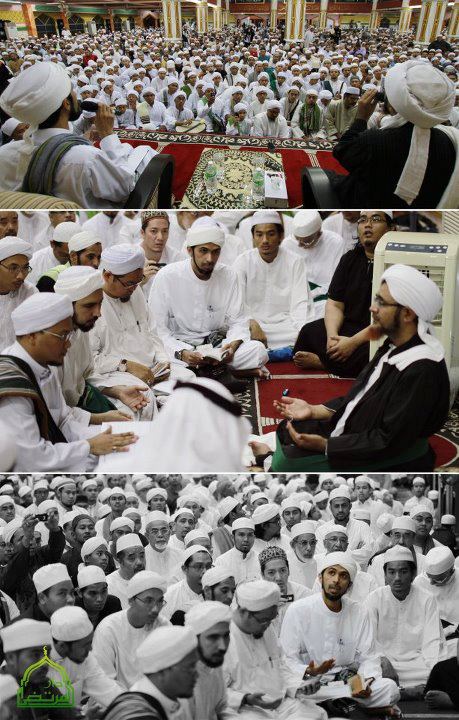Habib Umar bin Hafiz is the Director of Dar Al Mustafa, a seminary in Tarim, Yemen which is regarded as one of the foremost contemporary centres of Islamic education in the world. Habib Umar bin Hafiz is well known for his Prophetic lineage and status as one of the most important scholars alive today. His scholarship and preaching is highly regarded by Muslim communities from Indonesia to East Africa to Muslim communities in Europe and North America. Habib Umar also exerts global influence through his leadership of the Ba’Alawi spiritual and social movement with its roots in Yemen’s Hadhramaut valley. Habib Umar was ranked 33rd in this year’s list of the 500 Most Influential Muslims published by an international group of experts lead under the auspices of the Royal Institute for Strategic Studies in Amman, Jordan.
Habib Umar founded and runs Dar al Mustafa, a center for traditional Islamic scholarship that currently hosts an array of international students. The work of the seminary was featured in a major New York Times profilein 2009. He has joined the ranks of the world’s leading Muslim academics and scholars as a signatory of ‘A Common Word Between Us and You’, a document that builds bridges between Muslims and Christians. He recently spoke at Cambridge University on the need to continue such dialogues.
Habib Umar is noted for his outreach and education efforts and over the past year has made significant visits to South East Asia, Australia, Spain, Morocco and now the United State and Canada.
In July 2008, Habib Umar partnered with Muslim Aid Australia as founder of Yemen-based NGO Al Rafah Charitable Society to address issues of poverty and hunger and lack of sufficient health care in rural Yemen, particularly the Hadhramaut region. In December he convened a groundbreaking meeting of Arabic-speaking ulama from Yemen and the region to address the rise of theological extremism, calling on influential scholars to return to and promote theological moderation which characterizes the Yemeni tradition.

Tiada ulasan:
Catat Ulasan